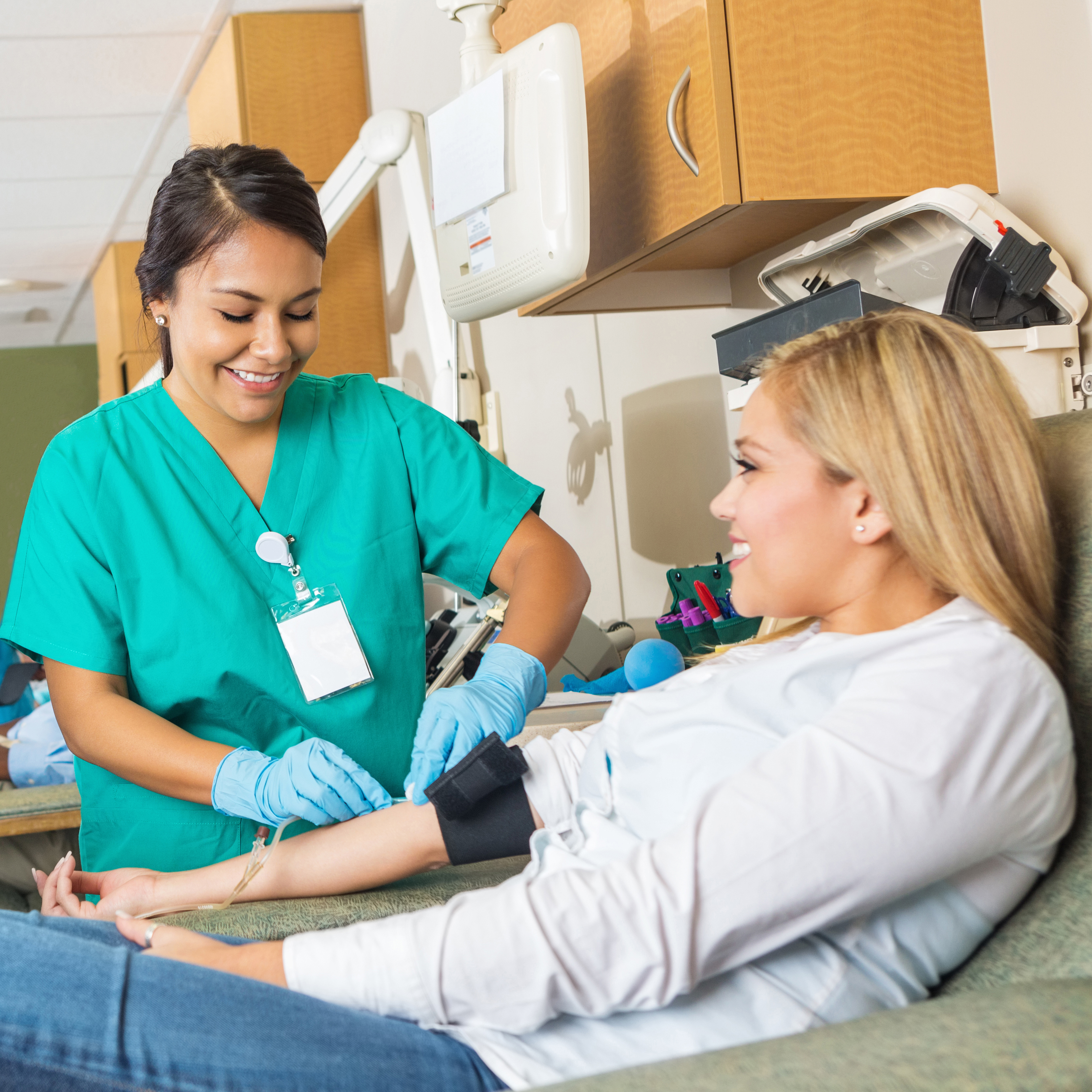![[media-entity-reference:media-alt]](/sites/g/files/zrelqx136/files/styles/billboard_tablet/public/media/images/2021/getting-started-billboard.jpg?itok=pn5wb7PE)
![[media-entity-reference:media-alt]](/sites/g/files/zrelqx136/files/styles/billboard_desktop/public/media/images/2021/getting-started-billboard.jpg?itok=4PYpXVCw)
Your Guide to Getting Started with Fertility Treatment
Deciding to see a fertility specialist is a big step on your journey to starting a family. When you meet with one of our fertility specialists, you will be given a complete overview of all the fertility options that are available for your unique situation. With your input, we will:
- create an individualized treatment plan, and
- explore all the aspects, including tests, medications, and visits.
We want our patients to feel as comfortable as possible during this emotional and sometimes stressful time. Our team is committed to providing the most caring, compassionate, and leading-edge fertility care available.
Step 1: Schedule an Appointment
Make sure to call and schedule your first appointment well in advance. You may have to wait anywhere from three to six weeks to see a fertility specialist. In the meantime, you can start gathering information and materials that will be helpful at your consultation. This could include:
- Medical records—Get copies of records from your OB/GYN, primary care provider, or fertility doctors you’ve seen in the past.
- Insurance information—This will be important to have during your meeting with our financial advisor (see Step 3). Make sure to bring insurance information for both you and your partner.
- Notebook—This can be helpful to jot down any notes or questions that might come up during your conversation with your doctor.
- Calendar—If you can, bring any calendars, apps, or other tools you may be using to track your menstrual cycle, sexual activity, and other related information.
Step 2: First Consultation with Your Fertility Specialist
![[media-entity-reference:media-alt]](/sites/g/files/zrelqx136/files/files/migration/couple-hands-with-doctor.jpg)
![[media-entity-reference:media-alt]](/sites/g/files/zrelqx136/files/files/migration/couple-hands-with-doctor.jpg)
At your initial fertility consultation, your physician will meet with you to review your medical records and discuss any conditions that may be affecting your fertility or previous treatments you've had. Be prepared to answer questions about some personal or sensitive topics, including:
- previous surgeries;
- any medications you are taking;
- alcohol, tobacco, or drug use;
- history of STDs; and
- past pregnancies, abortions, or miscarriages.
These conversations might seem uncomfortable, but our providers have a lot of experience discussing these issues and will do their best to help you feel at ease. Remember, the more information you can share with your doctor, the easier it will be to get a clear picture of your fertility and what treatment option will be most effective for you.
Step 3: Financial Advisement
If you’d like, you can meet with the UCRM's financial advisor next. This step is optional, but can be a great resource to help you understand what you can expect your treatments to cost. Your advisor will help you go over different pricing plans and discuss whether treatments may be covered by your insurance. We particularly recommend this if you are planning to undergo IVF.
Step 4: Fertility Assessments
Once the consultation is over, you’ll likely need to complete some lab work to help your provider develop a plan for treatment. Some patients can have these tests done at the Andrology Laboratory (located in the same building as UCRM) on the same day as your initial consultation. You may need to go to a different location, depending on your insurance.
Many of these tests will require you to give some blood samples, so be sure to arrive at the lab rested and hydrated, and wear a shirt with sleeves that can easily be rolled up. The particular tests will be specific to your situation, so not every patient will need every test listed below. There are several things your doctor may be looking at with these tests.
 Routine Pre-Pregnancy Screening
Routine Pre-Pregnancy Screening
- Prenatal panel—These blood tests are typically ordered in early pregnancy, including a complete blood count, blood type and antibody screen, confirmation of immunity to rubella and varicella (chicken pox), and routine infectious disease screening.
- Thyroid-stimulating hormone (TSH) level—TSH is a hormone produced in the pituitary gland at the base of the brain that controls your thyroid. The level of TSH in your blood will tell your doctor if your thyroid is working normally. A high TSH level indicates that your thyroid is underactive (hypothyroidism), which could cause irregular ovulation and negatively affect pregnancy.
Female Fertility Tests
- Anti-Müllerian hormone (AMH) level—This hormone is produced in the follicles of the ovaries and can help your doctor determine how many eggs are available. As women age, their AMH production decreases, meaning that there are fewer healthy eggs that could be fertilized. This helps to predict how you may respond to fertility treatments.
- Hysterosalpingogram (HSG)—This test is performed in radiology at a hospital. A catheter is placed in your cervix, and dye injected through your cervix to fill your uterus and fallopian tubes while X-rays are taken. It is used to determine if there are abnormalities of the shape of your uterus, and if your fallopian tubes are open.
- Saline sonohysterogram (SIS)—This is a specialized transvaginal ultrasound performed at the UCRM with a catheter placed into your cervix and fluid injected into your uterus. It is used to look for abnormalities of the inside of your uterus and can also help in determining if your fallopian tubes are open.
Male Fertility Tests
- Semen Analysis (SA)—This test will look at sperm concentration, shape, and motility to determine if any of these factors are affecting fertility. If abnormalities are found, additional testing may be ordered.
Step 5: Follow-up Appointment
After completing the blood tests and other fertility assessments, you’ll schedule a follow-up appointment with your doctor to discuss the results and create a plan for fertility treatment. Your doctor will be able to answer any questions you may have about the tests that were done, your results, and what they mean for you going forward.
Treatment Options
Depending on the results of your fertility tests, your doctor will most likely recommend one or a combination of the following options:
- Ovulation induction—This is used for women who have irregular cycles and don’t ovulate on their own. We can use medications, usually pills, to help release an egg.
- Superovulation—During superovulation (often referred to as “superov”), women are prescribed a medication that stimulates the ovaries to increase the number of eggs released during ovulation. This is often combined with intrauterine insemination.
- Intrauterine Insemination (IUI)—Sperm is placed directly in the uterus during ovulation. This allows more sperm to reach the fallopian tubes, giving you a higher chance of getting pregnant.
- In Vitro Fertilization (IVF)—IVF is one of the most effective fertility treatments available. During an IVF cycle, a woman takes injectable medications to grow multiple eggs at one time. When the eggs appear mature, they are harvested with an in-office procedure under sedation. Those eggs are then fertilized in the laboratory and grown into embryos. Typically, one embryo is transferred into the woman's uterus about five days after the eggs were taken out.
- Egg Donor Program—With this option, a young, healthy woman takes injectable medications to grow eggs, which are harvested and donated to another couple. This option can help women who are older, have premature ovarian failure, are carriers of genetic diseases, or have had multiple failed cycles of IVF, by providing them with healthy eggs.
Additional Resources
Counseling
It's normal for patients to have difficulty dealing with the many emotional issues associated with the infertility process. That's why the UCRM has a counselor available to give you support through the initial evaluation, treatment cycles, and follow-up phases of the program.
For more information please contact:
Laura A. Czajkowksi, PhD
801-581-3258
Email
*Patients pre-paying are given 30% discount on consultation fee.
Legal Resources
Patients who will be using a surrogate need to work with an attorney to ensure all necessary legal matters are done properly. Utah Center for Reproductive Medicine recommends patients work with lawyers who have experience in reproductive law.
UCRM is happy to work with your lawyer if you already have one. If not, we will recommend you to work with any of the following:
Damian Davenport
Attorney at Law
801-531-6195
http://davenportlaw.net/
Email
Lauren R. Barros
Attorney at Law
801-746-0670
http://www.LRBFamilyLaw.com/
Email
Contact Information
We are looking forward to getting to know you as we move forward through this process. Please feel free to contact us at any time with your questions.
